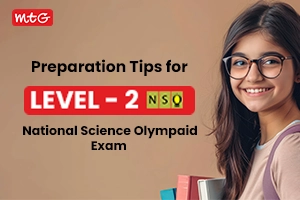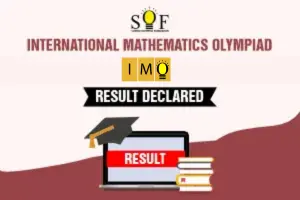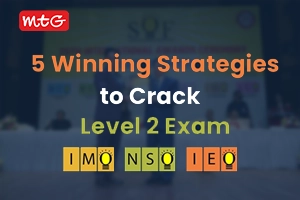
I’ve been exactly where you are—staying up late trying to get through endless CBSE chapters, stressing about covering every topic before the board exams, and then thinking, “What about those Olympiad questions?”
At the same time, I’ve felt the buzz of solving an SOF Science Olympiad problem in under a minute and wondering if I should focus more on that. Balancing steady, syllabus-driven prep with quick, logic-based puzzles isn’t easy, but it’s doable.
Here’s my straightforward take on juggling both: what each really tests, how you can prep smart, and why mixing both styles can actually make you a better learner!
Exam Showdown: Pen-and-Paper vs. Puzzle-Power
- Regular Exam
Regular exams conducted by CBSE board, follow a pen-and-paper format. You sit in a hall, fill in the circles or type into an online interface, and they have a predictable structure: three hours, strict invigilation, and sectional time limits (especially in JEE). You can say consistency and stamina are your allies here. check out the “Why You Should Not Study New Topics 10 Days Before the Examination!” post for tips on optimizing your final revision. - Olympiad Exam
Olympiads like the SOF channel your inner Einstein. Who knows you might be the next one? These Olympiads are generally held annually in a single 60-minute session, they may be pen-and-paper or computer-based, but every question feels like a mini-adventure in itself combining reasoning, multi-step logic, and cross-topic thinking. It’s less about endurance and more about agility: can you pivot quickly when a question throws an unexpected twist? For detailed strategies, see “Tips to Excel in the SOF Olympiads: What Teachers and Toppers Suggest”
Latest – Preparation tips to Score High in the International Hindi Olympiad (IHO) 2025
What You Actually Face Off
- Regular Exam
The syllabus for boards and entrance tests is laid out by academic authorities. For boards, it’s every topic listed in your Class 10 or 12 guide. Board exam syllabus mirror your Class 11 and 12 Physics, Chemistry, Biology, and Mathematics topics nationally. In such exams, you know exactly what to cover. - Olympiad Exam
Olympiads build on that foundation but they go much further testing students thinking & reasoning skills. The SOF Olympiad, for instance, revisits core concepts from your school books but twists them into deeper challenges. You’ll explore advanced reasoning, application-based questions, and sometimes entirely new topics. The only way to answer the question of whether you are ready or not is to know how curious you are to dig deeper into these textbook lines.
Question types
- Regular Exam
In regular exams, question types fall into much defined categories: numerical answer-type (NAT) and descriptive answers in boards (short answers, essays, and diagrams). The goal is to assess your grasp of facts, formulas, and standard problem-solving techniques under timed conditions. Precision and methodical practice prevail. - Olympiad Exam
Olympiad questions break the mold. One moment you’re calculating a simple reaction rate; the next, you’re solving a logic grid of number, obviously question varies depending on syllabus and subject. These questions value creativity just as much as accuracy, a single clever insight can earn you the same marks as dozens of routine calculations.
Know and Understand the Game Plan
- Regular Exam
A solid timetable can help you prep without being stressed, just cover every syllabus topic provided by head authority or the school body, make slot for school homework, maintain enough time for revising your notes, and get in your weeks with different full-length mock tests. For boards, add answer-writing sessions to refine clarity and presentation. For exams, consistently prioritize daily problem drills, sectional tests, and thorough analysis of past years’ papers. Consistency is key. - Olympiad Exam
Olympiad prep feels like training more like a marathon. Short intervals of study session will work wonders. Make it a habit of solving 10–15 high-difficulty SOF questions in small time passages, then discuss them with other peers who are prepping for Olympiads. Use specialized Olympiad workbooks, ones like MTG Books to diversify your exposure.
Important – SOF Olympiad 2025-26 Exam Dates, Preparation Strategy, and More
Recognition
- Regular Exam
High marks in board exams open many academic gates such as stream selection, scholarships, and college.. CUET and KCET scores will determine your seat in central or state-level universities. - Olympiad Exam
Earning a medal or certificate in the SOF Olympiad helps fueling your passion and build your reputation among others setting you apart. It can also lead you to various scholarships, invitations to special events, and even international representation of your institute.
Medals vs. Marks
- Regular Exam
Your board results become part of your permanent academic record. Ranks are published nationally, and scholarships or scholarships-based programs often depend on these numbers. CUET and KCET scores similarly dictate placement in desired universities. - Olympiad Exam
SOF awards winners with gold, silver, and bronze medals, certificates of excellence, and roll-of-honor mentions. Not only that, top performer may receive special scholarships, training opportunities, and invitations to international Olympiads.
Choosing or Conquering Both
Deciding between regular exams and Olympiads shouldn’t feel like a forced choice. Balancing both demystifies each exam’s challenges and enrich problem-solving toolkit. If your PRIME GOAL is a medical or engineering career, prioritize your board performance but sprinkle in Olympiad practice to sharpen your reasoning. If you thrive on intellectual puzzles and aim for research or science Olympiads, let that passion guide you, while maintaining solid regular exam scores.





























